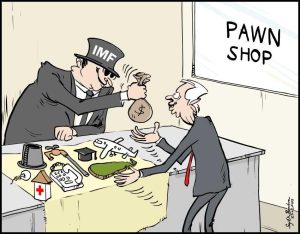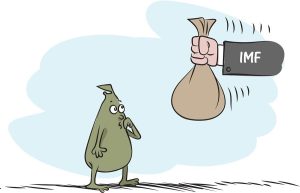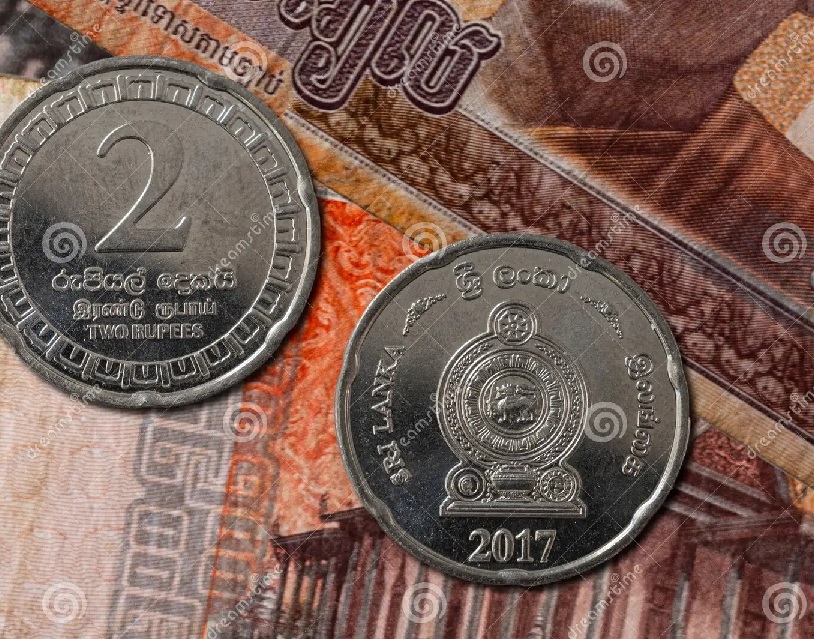Sri Lanka’s recent budgetary figures paint a nuanced picture of a nation grappling with the aftermath of a sovereign default, yet cautiously stepping towards recovery. Revenues have surged impressively, propelled by a 53% increase to 2,434 billion rupees by October 2023. This rise, driven by a 58% jump in tax collections despite a vehicle import ban, marks a significant shift from past expansionary policies.

The government’s new mantra seems to be “fiscal consolidation,” a two-pronged approach seeking both revenue growth and spending reduction. This marks a departure from earlier attempts at “revenue-based consolidation,” which critics argue contributed to an inflated state. The decline in both the overall budget deficit and domestic borrowings suggests this new strategy might be bearing fruit.
Sustainability Remains a Question :
However, the road to recovery remains bumpy. The increase in tax revenues comes at the cost of higher personal income and value added tax rates, implemented as a bitter pill following the 2022 default. While Finance Minister Shehan Semasinghe optimistically believes the original 11% of GDP target will be met despite a previous downward revision, the sustainability of such measures remains a question mark.
Current spending, though down slightly from last year, still rose by a concerning 27%. This highlights the delicate balance the government must maintain: cutting enough to curb the deficit while ensuring essential services and infrastructure development don’t suffer. The decline in capital and net lending due to halted infrastructure projects serves as a stark reminder of the economic toll the default has taken.
Adding to the complexity is the issue of interest costs. While the primary balance improved, an alarming 52% surge in interest costs exposes a vulnerability within Sri Lanka’s “flexible” exchange rate regime. Critics deem this system unstable, arguing its inconsistency conflicts with the government’s fiscal consolidation efforts. High nominal interest rates, a consequence of this regime, exacerbate existing challenges.
The International Monetary Fund (IMF) has ramped up pressure on Sri Lanka’s government to mend its financial ways, with a mid-mission review of the country’s bailout program revealing ongoing concerns about policy adherence and progress.
“We discussed the progress made towards achieving the goals and overcoming challenges encountered,” tweeted State Finance Minister Shehan Semasinghe after a Wednesday meeting with Peter Breuer, the IMF’s Senior Mission Chief for Sri Lanka. The tone, however, suggested more than just a friendly catch-up.

IMF Digging Deep:
Semasinghe emphasized the “importance of strengthening ongoing collaboration with the IMF for successful programme execution to strengthen the economy.” This language hints at frustration with perceived shortcomings on the Sri Lankan side.
Further underscoring the seriousness of the review, Breuer also met with Power and Energy Minister Kanchana Wijesekera. Their discussions delved into specific areas of reform implementation, including “cost reflective fuel pricing formulas, electricity tariffs, tariff revisions, and sectoral reforms.” The sheer detail suggests the IMF is digging deep into Sri Lanka’s energy sector, a crucial cog in the country’s economic engine.
Last week’s meeting between the IMF mission and President Ranil Wickremesinghe further solidified the focus on critical reforms. Electricity tariffs and the urgent implementation of property taxes were highlighted as key priorities.







